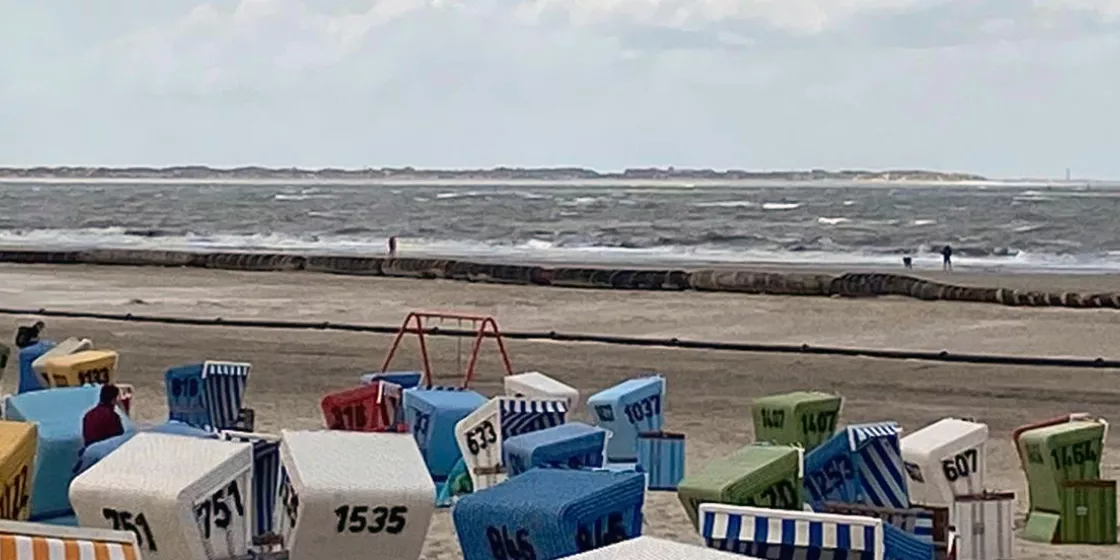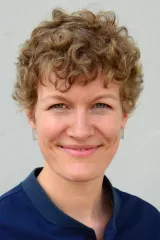
Lüke, what are you doing at the moment?
At the moment I'm still going to secondary school in Esens in East Frisia. After the school was closed because of Corona, the presence lessons have started again. However, our class was split up after our exams, so before the summer holidays I only had presence lessons every two weeks and spent most of the other time on the island. Normally I spend most of the weekends and my holidays on Langeoog. During this time I help out in the restaurant of my family. In my free time I like hanging out with my friends at the beach.
How have you experienced the Corona crisis on the island so far?
We were and still are strongly affected by the Corona crisis. At the end of March we had to close the hotel and the restaurant. Some of our employees didn’t have the chance to travel back to their homes and stayed on the island. It was a very tense and rare silence on the island. Normally the season starts during this time. Since we islanders depend directly or indirectly on tourism, everyone was very concerned about how things would continue. My family tried to make the best of the time. We expanded our online shop to sell our regional organic products. In the meantime we could reopen the restaurant and also the hotel, but of course only under strict security conditions.
Besides the Corona crisis, you are also concerned about climate change...
Yes, climate change is becoming more and more important to us. On Langeoog you can already observe the consequences. The time of storm tides is now beginning earlier than usual. As a result, beaches and dunes are being eroded. Especially on the east side of the island, where the dunes are not so high, there is a risk that the water breaks through the dunes and salinizes our freshwater lens, which provides us with drinking water. Our restaurant is also located on a dune. Nowdays sand has to be filled up twice a year. My parents say, that these costly land securing measures used to be necessary only every three years. They are very expensive for the state of Lower Saxony, but vital for us. The beach sections should be avoided during this time, because it is a life-threatening area. The work with the heavy vehicles and machines not only affects tourism, but also pollutes the environment.
You and other young people have filed a constitutional complaint to the Federal Constitutional Court demanding more climate protection. How did this come about?
My parents have long been committed to climate protection. Two years ago, together with other families from different countries, we filed a lawsuit with the European Court. In doing so, we are calling on the EU to do more for climate protection and to protect our fundamental rights. In our case it is about our business and therefore about our life on Langeoog. The other plaintiffs live from agriculture or run a hotel like we do. All of them are already suffering from the consequences of climate change. The case was dismissed, but we appealed to the second instance and are now waiting for a verdict. Together with our lawyer Roda Verheyen the idea of a lawsuit in Germany was born. Together with eight other young people from Germany, I filed a constitutional complaint with the Federal Constitutional Court. It addresses the German Federal Climate Protection Act, which is too weak to protect our basic rights from the consequences of the climate crisis. The EU and Germany must do more for climate protection.
Why are only young plaintiffs involved?
The constitutional complaint refers to our future, which is being taken away from us by political and economic mistakes made by people from previous generations. Global warming will increase and we will be particularly confronted with the consequences. I would like to have the opportunity to live and work on Langeoog just like my parents. But that is not possible if the dunes can no longer stand the storm tides, if the drinking water on the island is salinated or if our business is at risk. The same is true of the other plaintiffs who, for example, want to work in agriculture on their family's farm and are already suffering from severe droughts. It is important that we do something now to protect our future.
Information on the constitutional complaint can be found here
Information about the People's Climate Case can be found here
Sea level rise and storm tides on Langeoog:
The federal state of Lower Saxony is already adapting to climate change and recognises that the effects of storm surges will worsen due to rising sea levels.
The climate policy implementation strategy of the federal state of Lower Saxony provides a long-term programme that includes measures for adapting to rising sea levels. This rise is estimated at 50 cm by the year 2100. As a precautionary measure, the dikes are to be raised, but not the dunes. Existing coastal protection measures are to be extended up to a sea-level rise of 100 cm.

The coastal erosion on Langeoog is already considerable, as the plaintiff family Recktenwald observes. Since 1971, about 2.9 million m³ of sand have been deposited around the island to protect the dunes.
Coastal protection measures Langeoog
However, the starting level of the national adaptation plans, which are based on a sea-level rise of 50 cm by the year 2100, could be set too low, given current scientific estimates.
Already in the fifth Assessment Report of the Intergovernmental Panel on Climate Change (IPCC) from 2014, scientists indicate a maximum value of more than 80 cm by 2100. These estimates have been raised considerably in recent years due to the newly gained knowledge about the potential instability of the Antarctic ice sheet. The latest forecasts show that a global sea-level rise of up to 200 cm by 2100 is a conceivable scenario.

Copyright: XYZ
image discription
Climate researchers from the Deutsches Klima Konsortium, the Helmholtz Climate Initiative, Scientists for Future and Klimafakten.de state: "In the coming centuries, several metres of sea-level rise are to be expected. What we can and should influence, however, is how strong the rise in sea level will be in the coming centuries. The later humanity reduces its emissions of greenhouse gases, the more the oceans will rise in the long term. According to a study by the Potsdam Institute for Climate Impact Research, any delay in the emission peak by another five years will lead to an additional 20 centimetres of sea-level rise by 2300" (see: Facts from Science, March 2020).
The Recktenwald family will be affected by future impacts of climate change, as will their property, their economic opportunities and their future life.
Information on the climate change impact of the Recktenwald family can be found in the annex of the People's Climate Case lawsuit.
Photos: Lüke Recktenwald/Germanwatch

